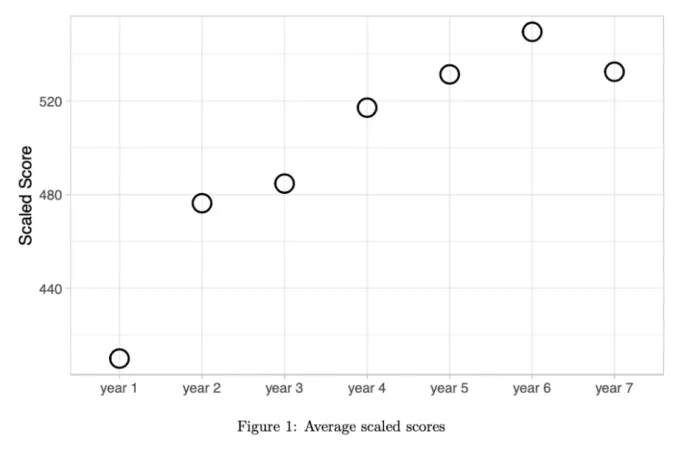Pupils starting secondary school this term are going backwards and are now nearly two years behind their expected progress in writing, according to assessments made last month.
In the study of over 112,000 year 7 pupils from 644 schools in England, pupils achieved scores in their writing comparable with an assessment of year 5 pupils in November 2019 - meaning they are 22 months behind where they should be.
News: Disadvantaged pupils face six-month ‘learning loss’
Related: Extra teaching needed to plug disadvantage ‘chasm’
Coronavirus: ‘Stop speculation about schools reopening’
The study from No More Marking - a company that offers comparative judgement assessments - found that pupils scored 533 on average on its universal writing scale, when they would be expected to score 557.
Daisy Christodoulou, No More Marking’s director of education, pointed out that in “March of Year 6, earlier this year, the same cohort averaged 550 on one of our assessments”.
“In fact, the score of 533 is about the same as that achieved in our most recent Year 5 assessment from November 2019,” she added.
In fact, the score of 533 is about the same as that achieved in our most recent Year 5 assessment from November 2019. Here’s an example of a piece of writing with the mean Year 7 score of 533. pic.twitter.com/nEyiF5vhmE
- Daisy Christodoulou (@daisychristo) October 30, 2020
And here is an example of a piece of writing with a score of 557, which is what we’d expect the mean to be. pic.twitter.com/ONLwlj5x0M
- Daisy Christodoulou (@daisychristo) October 30, 2020
Ms Christodoulou speculated about whether the loss in progress was linked to closures but could not be certain.
No More Marking “can’t definitely say this is because of Covid-19,” as there was no historic data on how pupils’ performance in writing changed at the start of year 7, she said.
“It could be that Y7s always fall back this far in Sept, due to summer holidays and school transfer. The existing literature suggests these have some impact - but nothing like 22 months!”
In a blog on the results, she said that where current year 7 levels of attainment were plotted on a graph of the average attainment of pupils in primary assessments from last year, “the results are quite stark”.
“The mean score of the Year 7 pupils is 533. This is almost exactly the same as the mean score from our most recent Year 5 assessment, held in November 2019. So Year 7 pupils are 22 months behind where we would expect them to be,” she added.
Ms Christodoulou said the task set for year 7 pupils was “exactly the same” as the one set for year 5s so the results were directly comparable.
She suggested that pupils may have fallen further behind in their writing than their reading, as they would have had fewer opportunities to practise writing at home during school closures.
Pupils were prompted to write about their “ideal job” in response to a text prompt.
Ms Christodoulou said that “writing with a score of 557 [the expected level for year 7] tends to be more sophisticated and to employ a greater variety of vocabulary and sentence structures than writing with a score of 533.”
“Whilst this gap is substantial, it is not unbridgeable. The pieces scoring 533 have many of the building blocks of good writing. It’s just that they tend to have more errors, and are more inconsistent,” she added.





